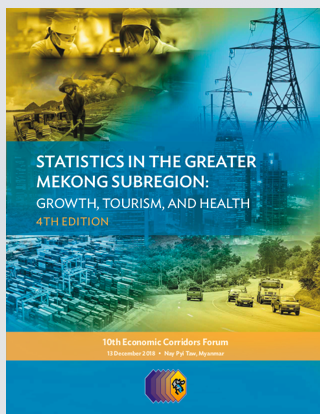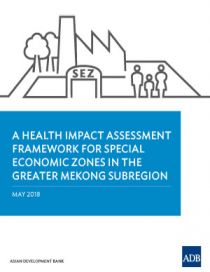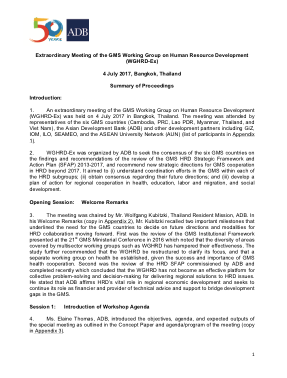Joint Statement from 24th GMS Ministerial Conference
Pave the way to a more integrated, inclusive, sustainable and prosperous GMS
Pave the way to a more integrated, inclusive, sustainable and prosperous GMS
This 5-year strategy identifies operational priorities for health cooperation for 2019–2023. It is a product of extensive consultations with members of the Greater Mekong Subregion (GMS) Working Group on Health Cooperation, GMS government stakeholders, and other GMS partners.
A technical assistance project in the Greater Mekong Subregion (GMS) is helping Myanmar eliminate malaria by 2030.
This is the summary of proceedings from the second meeting of the Greater Mekong Subregion Working Group on Health Cooperation (WGHC-2) in Yangon, Myanmar on 10 to 11 December 2018.

The 4th edition of the Greater Mekong Subregion statistical database booklet features two new chapters: tourism and health.

This health impact assessment framework serves as a guide to manage health risks and impacts in economic zones of the Greater Mekong Region and address transboundary issues associated with human migration.
The Greater Mekong Subregion is developing a health cooperation strategy that will improve health system performance in responding to public health threats, strengthen resilience to impacts of regional integration, and enhance human resource capacity to respond to priority health issues in the subregion.
This is the summary of proceedings from the first meeting of the Greater Mekong Subregion Working Group on Health Cooperation (WGHC-1) at Luang Prabang, in the Lao People's Democratic Republic on 13-14 December 2017.
More than 50 participants from the Ministry of Health, Ministry of Planning, and Ministry of Finance of the six GMS countries met on 5 July 2017 in Bangkok, Thailand to discuss the proposed GMS Strategy on Health Cooperation and the proposed GMS Working Group on Health Cooperation.

An extraordinary meeting of the GMS Working Group on Human Resource Development was held in Bangkok, Thailand on 4 July 2017.